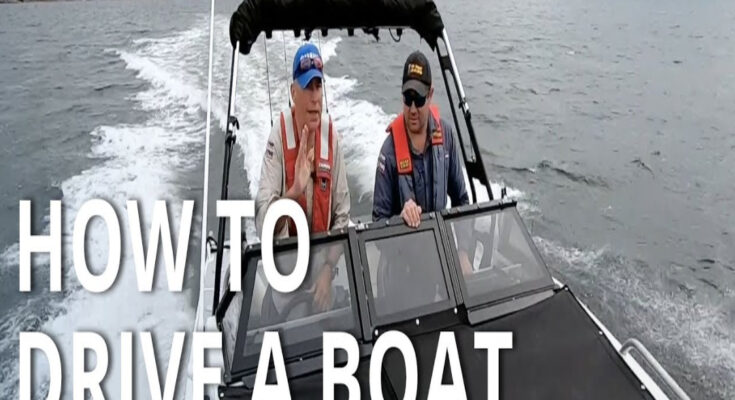Driving a boat can be a rewarding experience, but it requires some knowledge and skills to do it safely and effectively. Here are some basics to get you started:
1. **Know the Rules and Regulations**: Familiarize yourself with the boating laws, rules of the waterway, and any specific regulations for the area where you will be boating. This includes understanding speed limits, navigation markers, and right-of-way rules.
2. **Safety Equipment**: Always have the necessary safety equipment on board. This typically includes life jackets for every passenger, a throwable flotation device, fire extinguisher, distress signals, and a first aid kit.
3. **Pre-Departure Checklist**: Before you set out, conduct a pre-departure check of your boat and equipment. This ensures everything is in good working order and reduces the risk of issues while on the water.
4. **Practice Basic Maneuvers**: Learn how to start and stop the engine smoothly, steer correctly, and maneuver in open water, narrow channels, and docking situations. Practice these maneuvers in a safe area until you feel comfortable.
5. **Understanding Navigation**: Learn how to read charts, understand buoys and markers, and use navigation instruments like GPS and compasses. This helps you navigate safely and avoid hazards.
6. **Weather Awareness**: Stay informed about weather conditions before and during your trip. Sudden changes in weather can affect your safety and ability to navigate.
7. **Boat Capacity and Loading**: Do not overload your boat beyond its capacity. Distribute weight evenly to maintain stability and prevent swamping or capsizing.
8. **Alcohol and Boating**: Just like driving a car, avoid alcohol or drugs when operating a boat. They impair your judgment, coordination, and reaction time.
9. **Emergency Procedures**: Be prepared for emergencies such as engine failure, grounding, or medical emergencies. Have a plan and know how to use your emergency equipment.
10. **Respect Wildlife and Environment**: Practice responsible boating by respecting wildlife, maintaining clean waters, and following local environmental regulations.
By mastering these basics and continually improving your skills through experience and additional training, you’ll become a safer and more confident boat operator.
Absolutely, mastering these basics is essential for safe and enjoyable boating. Here’s a bit more detail on each point to help you get started:
1. **Know the Rules and Regulations**: Different bodies of water may have specific rules regarding speed limits, navigation in channels, and right-of-way. Understanding these rules ensures you operate your boat safely and legally.
2. **Safety Equipment**: Life jackets are crucial and must be in good condition and readily accessible. A throwable flotation device is typically required on boats over a certain size. Fire extinguishers, distress signals (like flares or a distress flag), and a well-stocked first aid kit are also essential.
3. **Pre-Departure Checklist**: Check your boat’s engine, fuel, electrical systems, and hull integrity before setting out. Ensure navigation lights work if boating at night or in reduced visibility. Verify that safety equipment is present and functioning.
4. **Practice Basic Maneuvers**: Starting and stopping smoothly, steering, and docking are fundamental skills. Practice these in different conditions (calm water, waves, wind) to build confidence.
5. **Understanding Navigation**: Reading charts, knowing buoy markers (red-right-returning in the US), and using GPS and compasses help you navigate accurately. Understand how to plot a course and navigate safely in unfamiliar waters.
6. **Weather Awareness**: Check weather forecasts before departure and monitor changes during your trip. Be prepared to adjust plans or return to shore if conditions deteriorate.
7. **Boat Capacity and Loading**: Adhere to the manufacturer’s recommendations for maximum weight and passenger capacity. Distribute weight evenly to maintain stability. Overloading can lead to swamping or capsizing.
8. **Alcohol and Boating**: Alcohol impairs judgment and reaction time, which are critical for safe boating. Designate a sober operator if alcohol will be consumed on board.
9. **Emergency Procedures**: Develop and review a plan for emergencies such as engine failure, grounding, or medical issues. Ensure everyone on board knows how to use emergency equipment and can assist in an emergency.
10. **Respect Wildlife and Environment**: Minimize your impact on the environment by following “leave no trace” principles. Avoid disturbing wildlife and dispose of waste properly.
By consistently practicing these basics and staying informed about best practices, you’ll enhance your skills and confidence as a boat operator, ensuring a safer and more enjoyable experience on the water.



